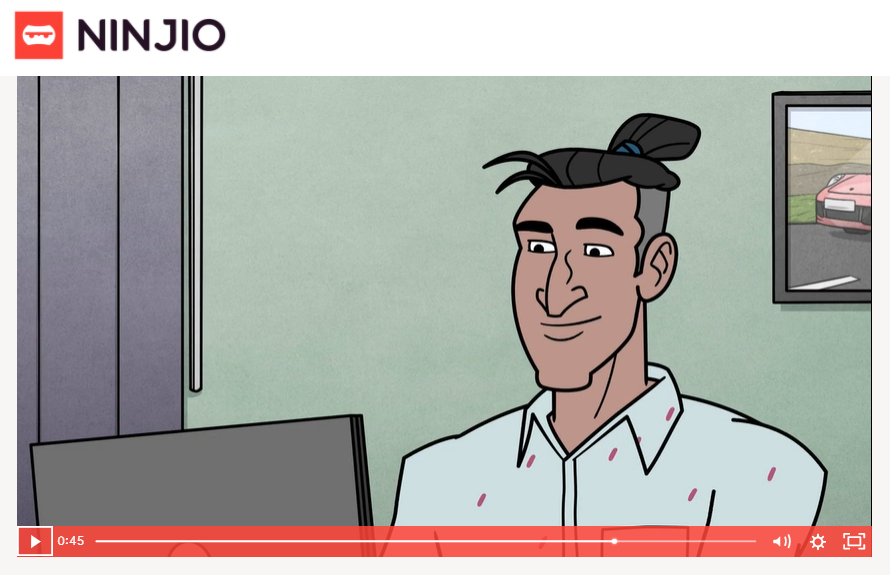Actor Jon Lovitz may not seem like the voice of HR, but he is exactly that for one new virtual training solution.
Lovitz is among several celebrities narrating animated microlearning content from NINJIO, which launched an HR vertical in August. The cybersecurity awareness training company expanded to include an HR arm at the prompting of several clients, says NINJIO CEO Zach Schuler.
“They said, ‘Can you NINJIOtize our HR training?’ I heard it so many times, about how horrible so many clients’ HR training was, so we looked at the market and said, ‘Heck yes, we can do it.’ And we want to do it in the exact same methodology we do cybersecurity awareness.”

The length of the episodes is designed to appeal to users’ shrinking attention spans. Schuler noted the Microsoft study that found the human brain today can be swayed from concentration in just six seconds; for millennials, that attention span is closer to two seconds.
“If you lose them, their mind is going to float,” Schuler says. “Traditional training is based on lecture, but for the vast majority of people, the way that they learn and retain information is if it’s delivered in a short bit and on a frequent cadence, as opposed to having to sit through a 45-minute-long death by PowerPoint.”
It’s not just about the time, however. NINJIO seeks to capture viewers with a storyline-driven format that offers emotional engagement from the very first scene.
“When you use a story-based format where you’re learning through inference and through the story and you have an emotional connection, you have a much better chance of getting people to pay attention,” Schuler says. “We’re looking for that one teachable moment, that one nugget people can walk away with and go, ‘Oh, I didn’t realize that me saying that, while I thought it was a compliment, could have been taken offensively.’ ”
Content—geared toward all levels of employees—will focus on “trending topics”: issues like workplace bullying, unconscious bias, sexual harassment and even new pandemic-related issues such as etiquette around social distancing and contact tracing, says Marta Voda, who is leading NINJIO HR.
“We’re putting together content that is meant to bring people together in a way that addresses the stress and pandemic realities of our world today,” she says. “It will focus on employee wellness and organizational wellness and all the things that are coming up that employees need to have civil discourse about.”
The designers aim to be centrist—while some politically related issues will be tackled, it’s from a neutral vantage point that highlights workplace complications, rather than the veracity of one opinion over another.
“HR is facing a lot of these issues for the first time,” Schuler says. “We want to create content that helps people have productive conversations about navigating these very sensitive and new waters that are literally popping up every day.”
Today’s challenging conditions are ripe for virtual microlearning, Voda notes. Users can watch the episodes from home in just a few minutes and are even encouraged to pass them along to friends and family; each registered user receives a code that can automatically send new episodes to up to seven other people when they publish.
Given the rapidly changing nature of HR, she adds, many in the workforce, as well as business leaders, are looking to HR to be “inspirational leaders,” which non-traditional, agile L&D can help them strive for.
“This is a time where we have more change than most of us have ever had to deal with,” she says. “I see NINJIO as a complement to reinforcing company culture and common core values in order to help organizations embrace change.”